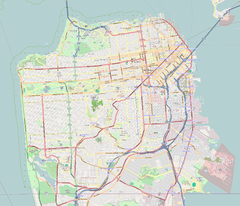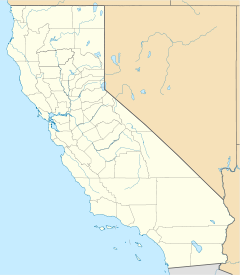City of Paris Dry Goods Co.
| City of Paris Dry Goods Company | |
|---|---|

Motto of the City of Paris
|
|
| Alternative names | City of Paris |
| General information | |
| Status | Demolished 1980 |
| Type | department store |
| Architectural style | Beaux-Arts |
| Address | 150 Stockton Street |
| Town or city | San Francisco, California |
| Country | United States |
| Coordinates | 37°47′15″N 122°24′23″W / 37.787432°N 122.406464°WCoordinates: 37°47′15″N 122°24′23″W / 37.787432°N 122.406464°W |
| Opened | 1896 |
| Closed | 1981 |
| Design and construction | |
| Architect | Clinton Day |
| NRHP Reference # | 75000471 |
| Added to NRHP | January 23, 1975 |
The City of Paris Dry Goods Company (later City of Paris) was one of San Francisco's most important department stores from 1850 to 1976, located diagonally opposite Union Square. During mid 20th century it opened a few branches in other cities of the Bay Area. The main San Francisco store was demolished in 1980 after a lengthy preservation fight to build a new Neiman Marcus, although the store's original rotunda and glass dome were preserved and incorporated into the new design.
The store's history is rooted in the 1849 California Gold Rush. The company was founded by Felix Verdier in May 1850 when he arrived in the San Francisco Harbor on a chartered ship, the Ville de Paris (City of Paris), loaded with silks, laces, fine wines, champagne, and Cognac. Verdier had previously owned a silk-stocking manufacturer in Nîmes, France. The citizens of San Francisco quickly surrounded the ship with rowboats and purchased all the goods without them ever being unloaded from the ship. Many purchases were made with bags of gold dust. Verdier quickly returned to France and loaded the ship bound for San Francisco arriving in 1851, where he opened a small waterfront store at 152 Kearney Street called the City of Paris. The store's Latin motto (Fluctuat nec mergitur, "It floats and never sinks") was borrowed from the city seal of Paris.
The store's final and best-known location was a Beaux-Arts building designed by architect Clinton Day, built in 1896 on the corner of Geary and streets across from Union Square.
...
Wikipedia



